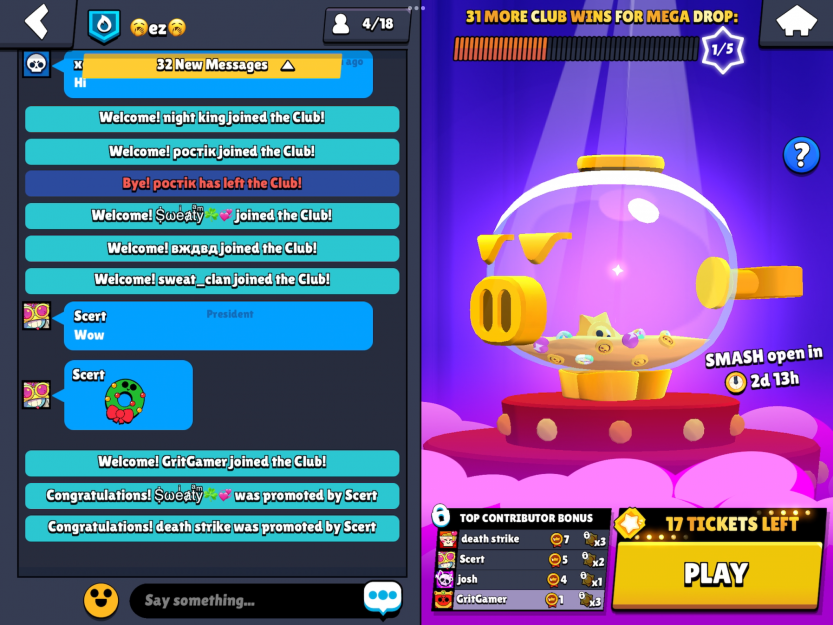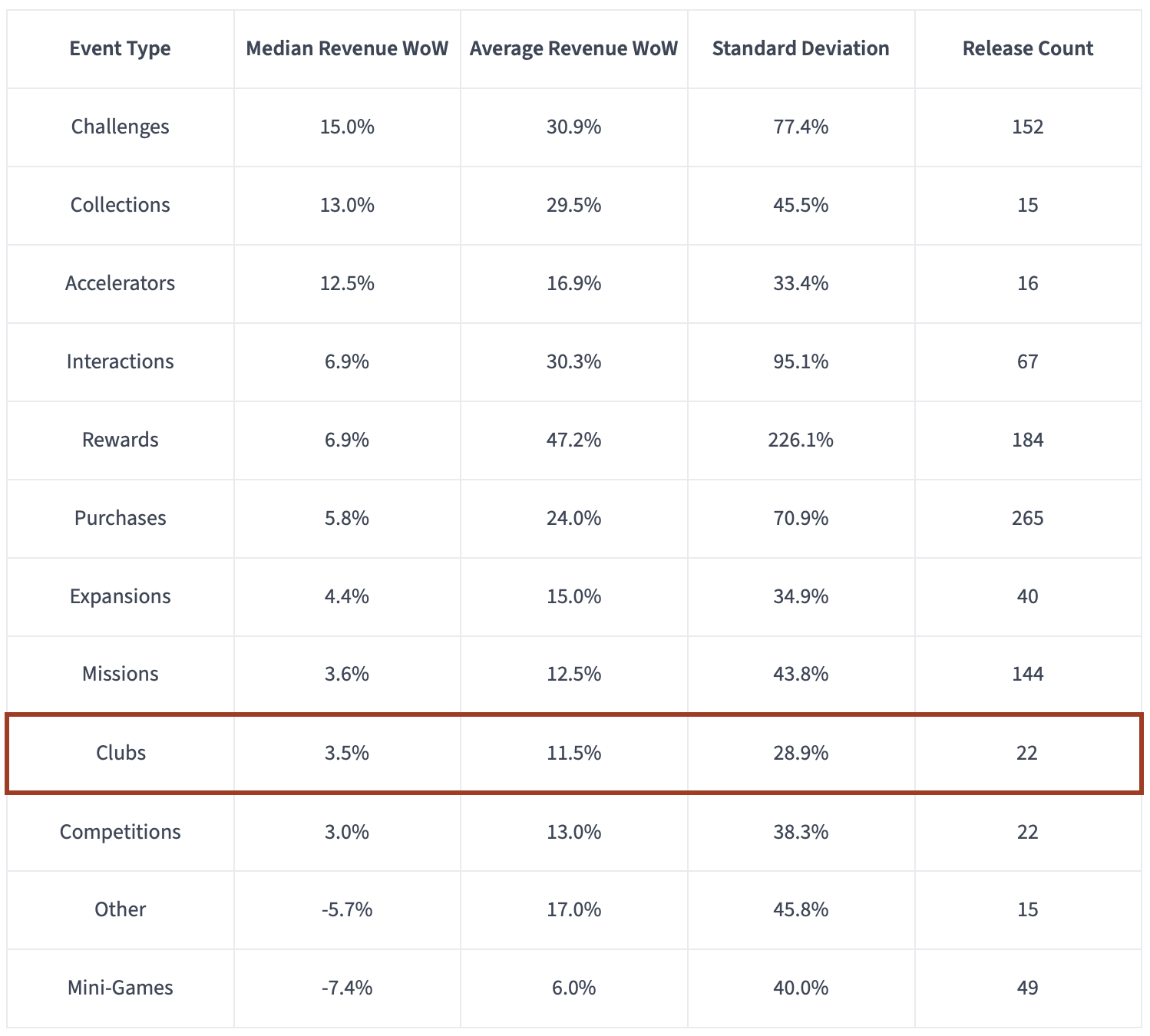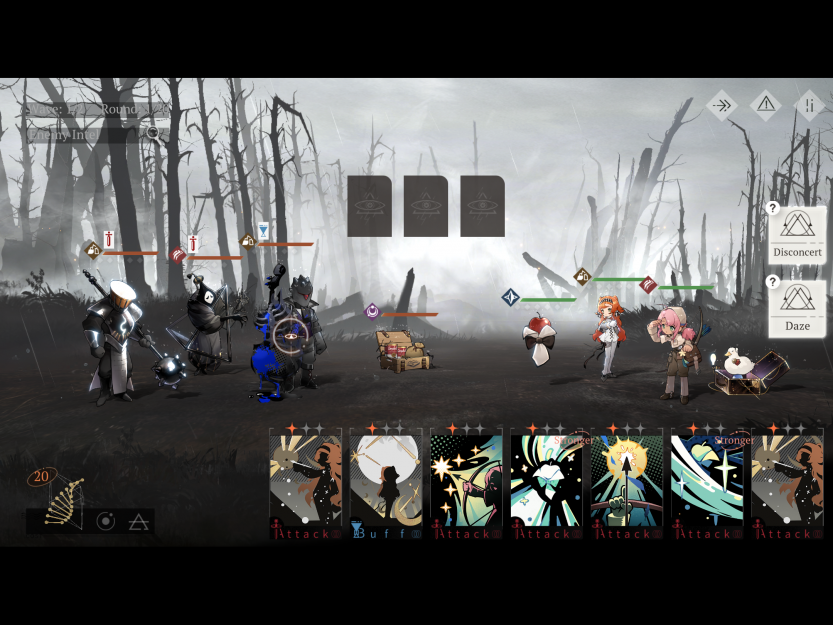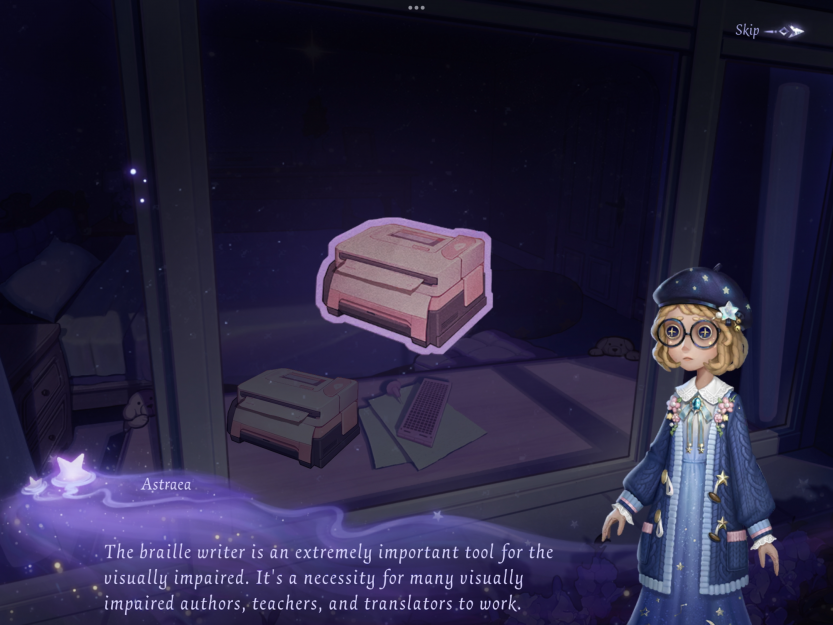Read this month’s Headline Release and Market Watch
Two Keys to Designing More Inclusive Club Events
Brawl Stars’ Mega Pig revamps the app’s main club content by introducing a non-competitive reward progression and a more flexible schedule. These changes make Mega Pig more approachable than Brawl Stars’ previous main club content, Club League. At the same time, a randomized reward system and a high number of matches have led to pushback from players. We expect Brawl Stars will adjust both of these systems during the event’s extensive testing phase.
In Mega Pig, players win matches to fill a club-wide meter that upgrades rewards from the event. This offers a more consistent progression compared to Club League, which ranked clubs against each other and demoted clubs that performed poorly. Additionally, Mega Pig gives players greater flexibility in choosing when to play matches, which makes it easier to get involved.
Mega Pig also replaces Club League’s shop-based reward system with randomized loot boxes. This change has sparked a considerable backlash from the community as it reduces the app’s only free faucet of a crucial resource. The decision to use loot boxes is notable because Brawl Stars removed loot boxes from its main single-player progression with the release of Starr Road at the start of 2023.
While the inclusion of randomized rewards in Mega Pig was likely necessary to avoid overinflating players’ wallets, it significantly diminishes the value of club rewards and shows that Brawl Stars hasn’t been able to fully move away from loot boxes.
Club Events Are Reliable But Low Revenue Drivers
Club events have relatively low revenue impacts in the core market compared to other event types, but still perform quite well, with median and average revenue impacts of 3.5% and 11.5% WoW. They also have the lowest standard deviation of any event type, suggesting that they perform fairly consistently.
Read this month’s Headline Release for our full analysis, which also includes how Mega Pig uses randomization to incentivize players to expand their roster of heroes.
Market Watch
Breakout Apps: Two Anime-Inspired RPGs with Extensive Narratives
Town management sim Isekai: Slow Life has maintained a spot in the top 40 RPGs since its launch in August. The app stands out by offering a remarkable number of progression systems, including narrative or role-playing elements in nearly all of its features, and allowing players to date and marry a diverse range of NPCs.
Reverse: 1999 has been in the top 100 RPGs since its launch last month. It features tactical turn-based battles with spell cards and an ambitious story in which time moves backward and storms erase historical events. This story is bolstered by unique anime-inspired visuals, an eccentric cast of characters, and strong voice acting.
Read our complete teardowns of these apps in this month’s Market Watch.
New Releases: Visual Accessibility, Whack-a-Mole, and The Little Prince
In Identity V’s Astraea Night, players complete base game tasks to unlock dialogue and interact with items thematically related to visual impairments, such as a braille writer. This event ties in with the app’s release of visual accessibility settings one week later.
In Call of Duty: Mobile’s Spectral Smackdown, completing challenges awards tokens for a ghost-themed whack-a-mole mini-game. Tapping certain ghosts awards or removes points, which fill a meter that awards skins at milestones.
In Game of Sultans’ The Little Prince Collaboration, players engage in new and reskinned events based on the novella The Little Prince, including a board game, a solo challenge event, and a team challenge event.
Read this month’s Market Watch for our full teardowns of all notable releases, which also include a horse racing mode, vehicle content based on real Pagani sports cars, and more.




